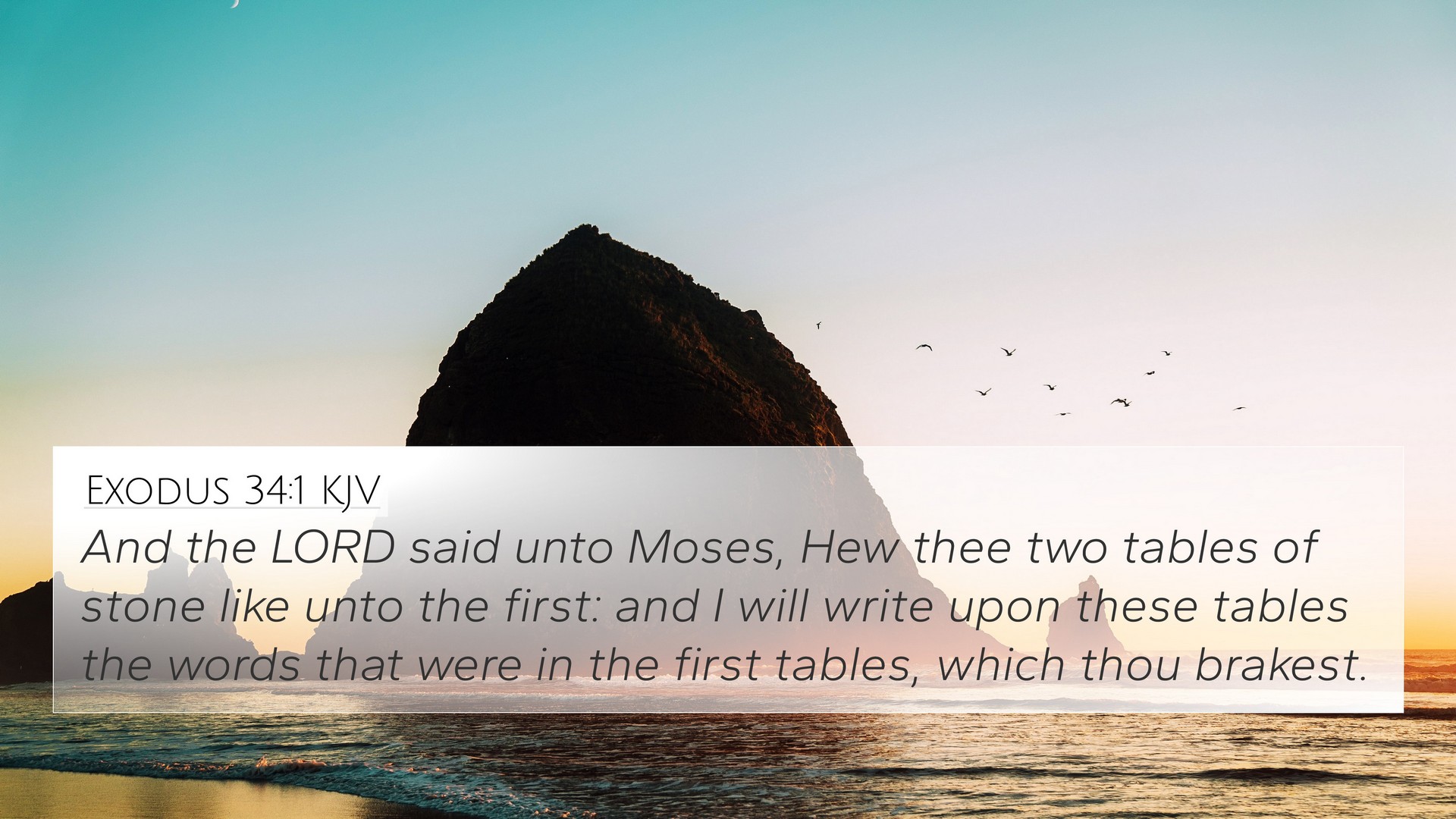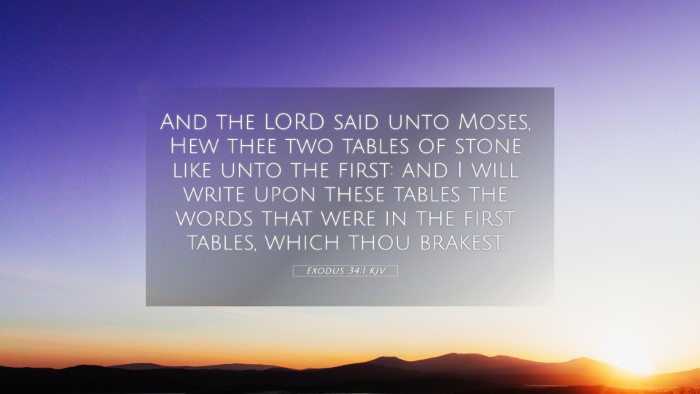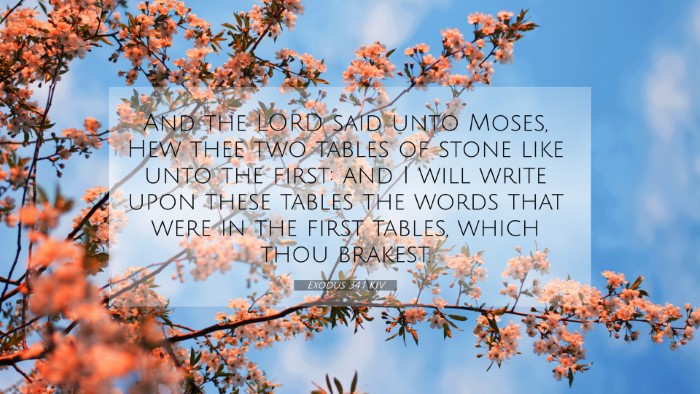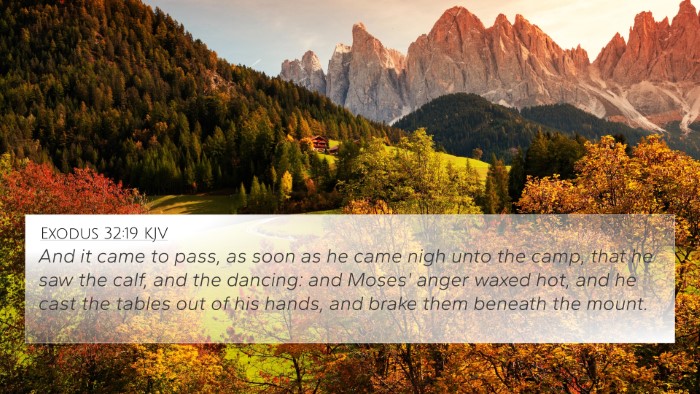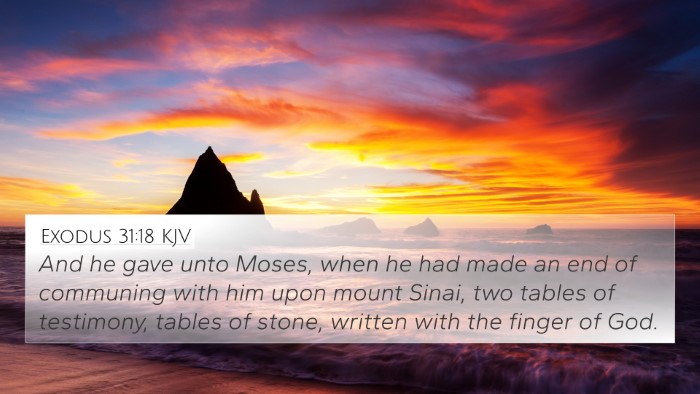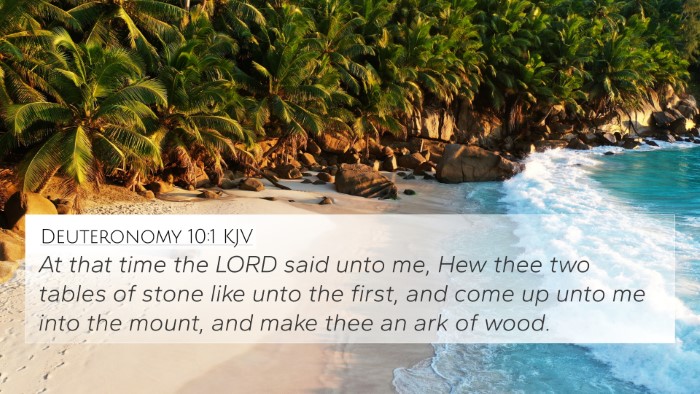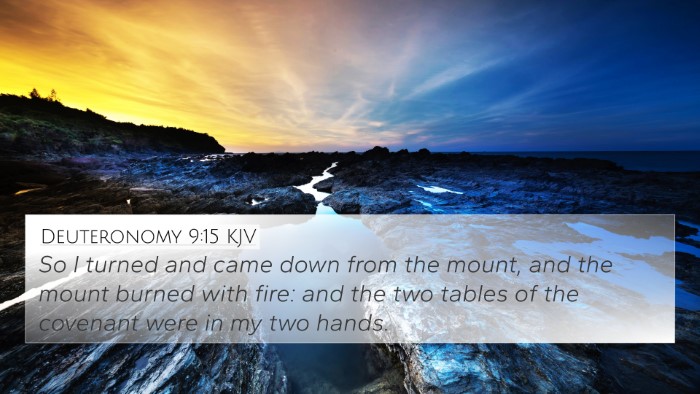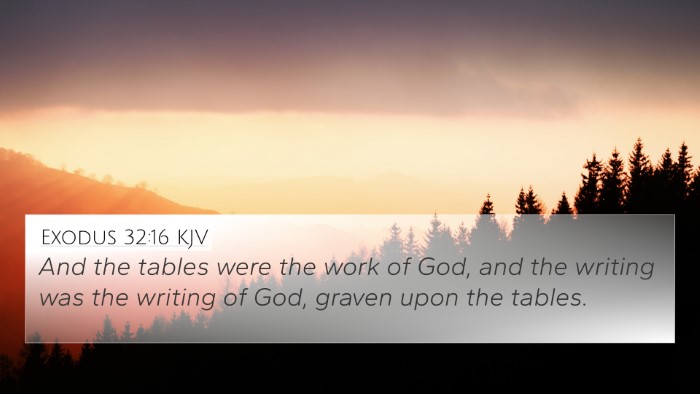Exodus 34:1 - Meaning and Interpretation
Exodus 34:1 states: "And the Lord said unto Moses, Cut thou two tables of stone like unto the first: and I will write upon these tables the words that were in the first tables, which thou brakest." This verse is pivotal in understanding the relationship between God and His people, as well as the concept of covenant in the Old Testament.
Contextual Background
In the preceding chapters, we learn that Moses ascended Mount Sinai where he received the Ten Commandments, only to descend to find Israel worshipping a golden calf, leading to his anger and the breaking of the original tablets. Thus, Exodus 34:1 marks a crucial moment of restoration and renewal of the covenant.
Commentary Insights
-
Matthew Henry's Commentary:
Matthew Henry explains that this verse signifies a fresh opportunity for Israel and emphasizes God's mercy. The act of cutting new tablets represents the restoration of God's law amidst human failure. Henry highlights that God’s willingness to write again on the stone illustrates His everlasting commitment to His people despite their transgressions.
-
Albert Barnes' Notes:
Albert Barnes points out that cutting the new tablets signifies not only a physical action but also the spiritual renewal that God offers. Barnes links this verse with the theme of redemption, emphasizing that God desires to reconcile with His people after their disobedience. The phrase "I will write" underscores the divine authority behind the commandments, pivotal for understanding the Law’s significance.
-
Adam Clarke's Commentary:
Adam Clarke elaborates on the technical aspects of stone tablets and their importance in ancient cultures as symbols of permanence and authority. He also reflects on the nature of the new tablets as a sign of hope for the Israelites, reiterating God's intention to continually guide and instruct His people even after their failures.
Thematic Connections
Exodus 34:1 creates thematic connections to various biblical passages, illustrating the idea of renewal, mercy, and covenant throughout the Scriptures. The following cross-references relate to this verse:
- Deuteronomy 10:1-2: Highlights Moses receiving new tablets.
- Jeremiah 31:33: Speaks of a new covenant with the house of Israel.
- Romans 8:1: Offers insight into condemnation and the concept of restoration through Christ.
- 2 Corinthians 3:3: Compares letters of the law to the letters of the Spirit.
- Psalms 119:89: Affirms the everlasting nature of God’s Word.
- Hebrews 8:6: Discusses the superiority of a new covenant.
- Matthew 5:17: Jesus speaks about fulfilling the Law.
Linking Biblical Texts
The connections between Bible verses can be seen as a dialogue between the Old and New Testaments, presenting insights into how God’s principles remain constant through the ages. In exploring these connections, one can utilize various tools for scriptural cross-referencing.
Tools for Cross-Referencing
For deeper studies, one might consider employing resources such as a Bible concordance or a cross-reference Bible study guide. These tools can help uncover intricate links between biblical texts, aiding in personal study or sermon preparation.
Practical Applications
Understanding Exodus 34:1 promotes important themes for believers today:
- God’s Mercy: The restoration after Israel's sin illustrates God's unwavering grace.
- New Beginnings: God continuously offers renewal and hope to His people.
- Covenantal Relationship: The significance of God's law as a guide for living righteously.
- Authority of Scripture: Understanding the divine source of moral and spiritual guidance.
Conclusion
Exodus 34:1 stands as a profound testament of God’s relationship with humanity, embodying themes of forgiveness, renewal, and instruction. The insights drawn from public domain commentaries illuminate its meaning, while the connections to other scripture enrich the understanding of biblical covenants. Exploratory study through cross-referencing enhances one's grasp of the Biblical narrative as it reveals interconnected themes that shape a believer's faith journey.
